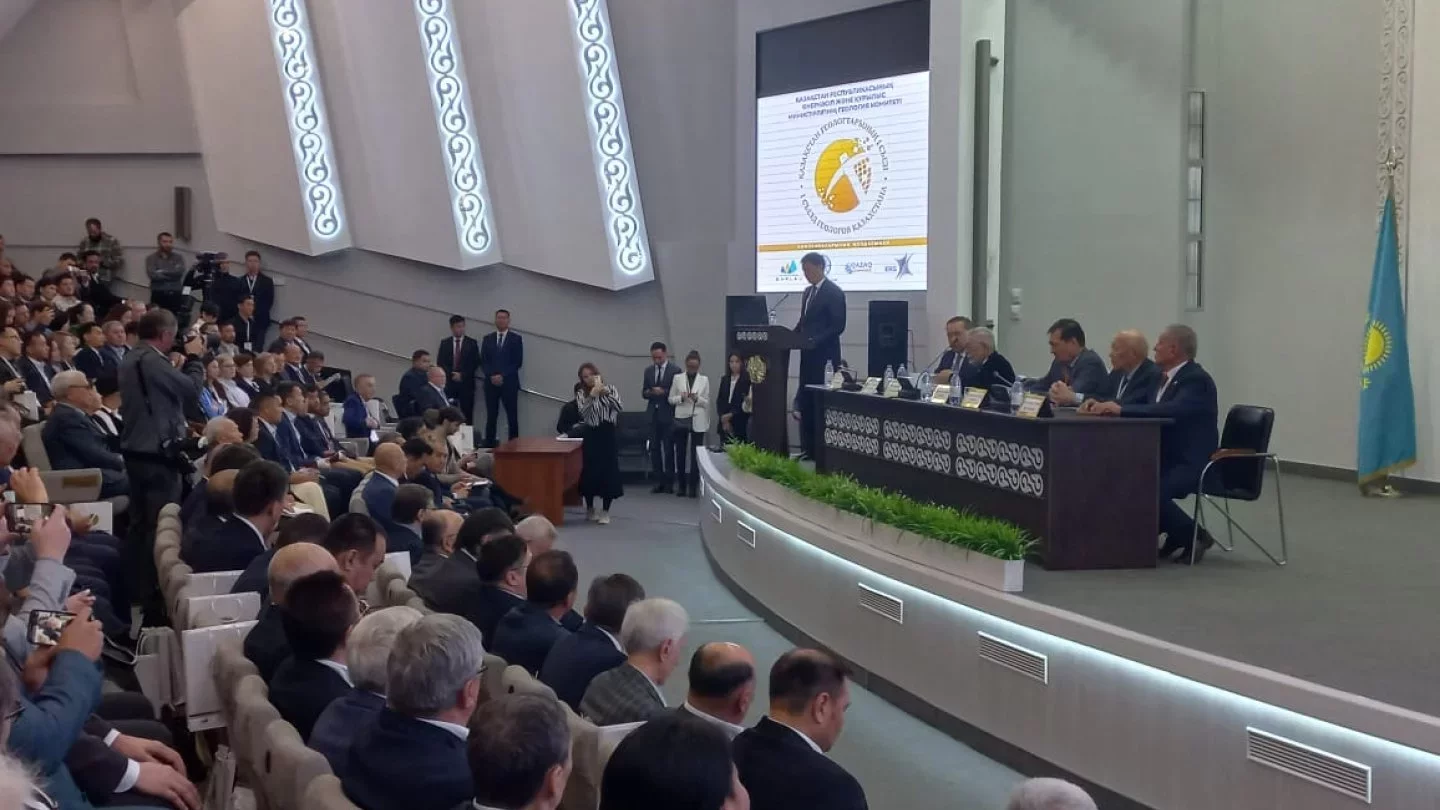Forget about The Periodic Table: Large Scale Congress Held
 Photo: Orda
Photo: Orda
For the first time in Kazakhstan, a large-scale republican congress of geologists was held. Scientists, heads of exploration companies and mining and metallurgical complex took part in it.
Limit Reached
Kazakhstanis are used to saying that "we have the whole periodic table under our feet,” a well grounded statement. During the Soviet period, a powerful mineral resource base was created. And it seemed to be eternal and unshakable. However, there is a limit. The country was provided with minerals for only 45-50 years. And today they are running low.
The geological industry is the foundation of the economy, but little attention has been paid to it. It has been in the "shadow" for more than 30 years. Therefore, the mineral resource complex of Kazakhstan is going through hard times. And as a result, there is a depletion of mineral reserves, said Chairman of the Geology Committee Yerlan Akbarov.
The Industry's Current Situation
The current state of geological exploration in Kazakhstan is associated with many factors. Low funding is one of them. The state invests only $8 per square kilometer in geological exploration. Comparatively, Uzbekistan invests $98, Australia – $ 167, Canada - $203.
Geological exploration and subsoil use in Kazakhstan also do not have any benefits and preferences except for the extraction of coalbed methane. Their search capacity is thereby almost exhausted. This has generated the series of problems that geologists face almost daily.
Outdated geological exploration technologies are used locally, imported equipment, including software for processing geo-data, undeveloped infrastructure, and scientific developments of Kazakhstani scientists are not in demand by subsoil users, Akbarov said.
The lack of normal state regulation (geological exploration was transferred from one department to another 12x) and interaction between representatives of the state of science and business have aggravated the situation.
"Cooperation between national companies – science – business - ministries/akimats – social and entrepreneurial corporations is ineffective, critically low funding for the state geological exploration of the subsoil, the costs of private investors for exploration are not reimbursed in case of a negative result and are also not taken into account when calculating income tax, non-metallic (common) ones remain out of sight minerals," explained Akbarov.
Corruption and Incompetence
According to scientists, during the exploitation of deposits, thinking about replenishing these reserves is necessary. This requires an effective and simple system of protecting mineral resources’ use. But in Kazakhstan, it is artificially hindered by the ministries and departments responsible for this because of their incompetent decisions.
Everything is (concentrated - Ed.) in one place. The Ministry of Energy and Oil is engaged in mining, contracting and all that is called rational use of mineral resources. And backscratching happens. The Ministry of Industry is the same for minerals, said Academician of the National Academy of Sciences of Kazakhstan, Serikbek Daukeev.
Meanwhile, according to the academician, an interdepartmental commission consisting of representatives of various departments should deal with matters concerning the protection and use of minerals.
Let the Committee of Geology, for example, grant the right for geological study, and the Ministry of Energy – for oil production. But if there is an interdepartmental working commission, which will include representatives of different ministries: economy, finance, foreign affairs, etc., then competent decisions will be made and the corrupt component will be minimized because it is difficult to negotiate with different ministries, the academic suggests.
Only a qualitative study of the country's subsoil will lead to the emergence of new potential oil and gas provinces, ore regions, groundwater deposits and geothermal sources, which will facilitate discovering new deposits in the future. It is nonetheless necessary to revive geological scientific research and geological exploration. Moving forward, the congress’ participants propose to create an "advisory council on the state geological study of the subsoil" with independent specialists.
Following the results of the congress, a memorandum of understanding was signed between the British Geological Survey and Kazakhstan JSC "National Geological Service". The parties agreed to exchange experience on the introduction of advanced technologies in the field of geology, regional geological research and the creation of geological maps and databases.
Original Author: Rayana Batyr
DISCLAIMER: This is a translated piece. The text has been modified, the content is the same. Please refer to the original piece in Russian for accuracy.
Latest news
- Taraz Prosecutor’s Office Confirms Irregularities in Tender Process
- Chinese to Invest 70 Billion Tenge in "Underground" AI Project in Kazakhstan
- Thermal Power Plant Projects: Kazakhstan Looking for Alternatives for Russian Contractors
- Shymkent Theater Officials Accused of Embezzling Over 136 Million Tenge
- Ashgabat Responds to Media Report on Internet Access
- Rare Glimpse: Red-Listed Lynx and Secretive Badgers Filmed in the Wild
- Kairat Forward Becomes Youngest Kazakhstani to Score in Champions League
- Orda's Editor-in-Chief Targeted in Questionable Ownership Maneuver
- Businessman Tried to "Push Through" Astana Boiler House Project with a Bribe
- Foreigners Coming to Uzbekistan for Work Will Be Required to Take an HIV Test
- Toqayev Appoints New Director to Reorganized Anti-Corruption Body
- Former Employees of Key Witness Testify in Sarbasov Trial
- Kazakhstan Plans to Launch Direct Flights to New York, Tokyo, and Singapore
- Kazakhstan Expects Minimal Impact from U.S. Tariffs, Trade Ministry Says
- Hemp to Be Cultivated in Northern Kazakhstan for Industrial Use
- Tajikistan and Kyrgyzstan Sign Series of Cooperation Agreements After High-Level Talks
- Vostokmashzavod Disputes Railcar Downtime Charges from KTZ-Freight
- Alik Aidarbayev Appointed General Director of Kalamkas-Khazar Operating
- Trump’s Tariff: Experts Weigh In on Kazakhstan’s Possible Response
- Kazakhstan Meat Cleared for European Market

